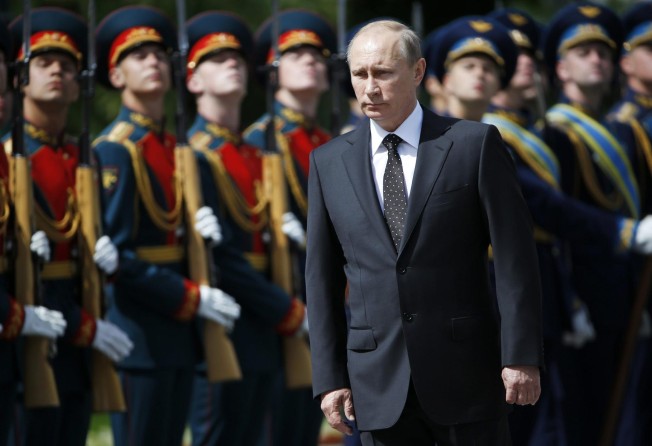Ukraine sanctions don't mean new cold war, Obama says, as Russia ties worsen
Announcing sanctions against key Russian businesses, president says Ukraine is a 'specific issue'

Russia blasted the West's new economic sanctions yesterday, accusing the US of being "prosecutorial" in its drive to impose penalties on the country's key energy and finance sectors.
The US and European Union on Tuesday announced a raft of new sanctions that would limit the trade of arms and technology that could be used in the oil industry and for military purposes. The EU also put its capital markets off limits for Russian state-owned banks.
The US and EU say Russia is helping the separatist rebels in eastern Ukraine who are accused of downing the Malaysian Airlines jet this month.
Russia's foreign ministry said Washington was "advancing baseless claims", accusing it of conducting itself in a "pretentious, prosecutorial manner".
Experts say the penalties, which had until recently mainly targeted individuals, will have more bite to them this time, rippling through the economy and causing deeper damage.
The biggest immediate impact is likely to come from the financial sanctions. Russia's central bank said yesterday it would support banks targeted.
"State-owned banks are the core of the Russian banking system. Together they count for half of assets, half of credits - they perform a very significant role," said Vladimir Tikhomirov, chief economist at BCS. "Given their current difficulties in raising new debts... that would mean their ability to lend to other banks, smaller banks, is going to be more restricted also."
US officials said on Tuesday that roughly 30 per cent of Russia's banking sector assets would now be constrained by sanctions. Five of the six largest state-owned banks in Russia are now under US sanctions.
The measures against Russian banks are meant to inflict pain without causing collapse. Only debts with a maturity of over 90 days will be targeted.
"The aim is not to destroy these banks," said a senior EU official. "We do not want them to get into a liquidity crisis."
But analysts say the sanctions will inflict economic pain, not least because the resulting uncertainty will ensure investors stay clear of those banks for fear of running foul of sanctions.
"Russia's actions in Ukraine and the sanctions that we've already imposed have made a weak Russian economy even weaker," President Barack Obama said on Tuesday.
Europe has a far stronger economic relationship with Russia than the US does, and until this week European Union leaders had been reluctant to impose harsh penalties - in part out of fear for their own economies.
The new EU sanctions put the 28-nation bloc on par with earlier sanctions announced by the US and in some cases may exceed the American penalties.
Despite the West's escalation of its actions against Russia, Obama said the US and Europe were not entering a Soviet-era standoff with Russia.
"It's not a new Cold War," he said. "Obviously, we can't, in the end, make President Putin see more clearly. Ultimately, that's something President Putin has to do on his own."
How long the sanctions stay in place is a key factor for how much impact they will have on Russia. EU officials emphasised that while the latest measures have a duration of one year, they could be annulled at any time.
It remains uncertain whether the tougher penalties will have any impact on Russia's actions in Ukraine - nor is it clear what further actions the US and Europe are willing to take if the situation remains unchanged. In the nearly two weeks since the Malaysia Airlines plane was downed in eastern Ukraine, Russia appears to have deepened its engagement in the conflict, with the US saying Russia is building up troops and weaponry along its border with Ukraine.